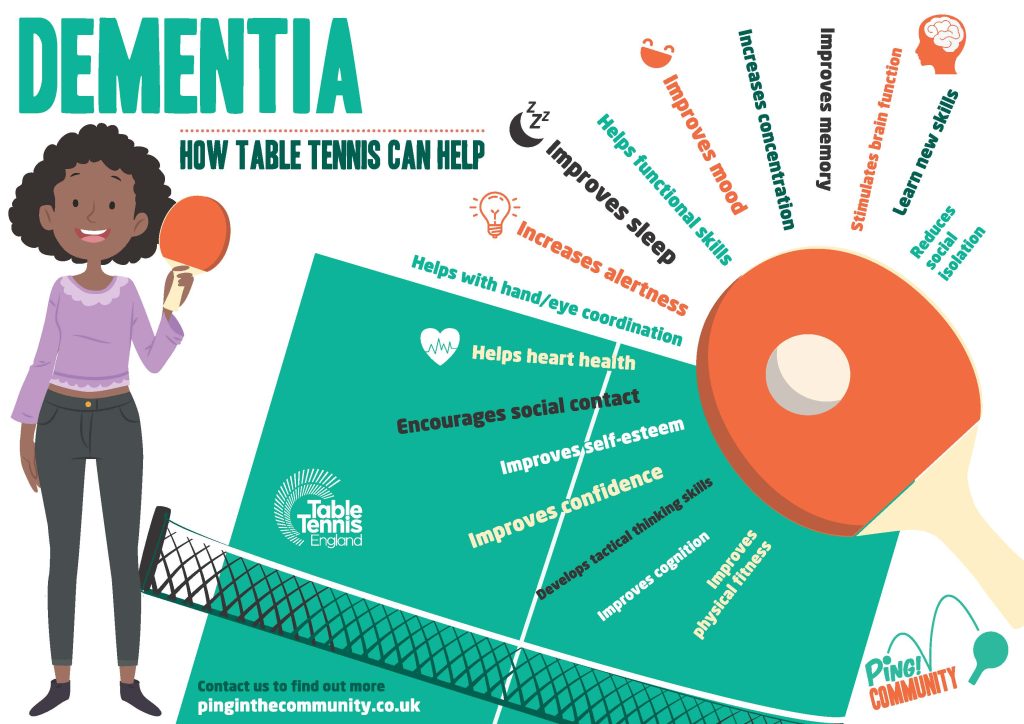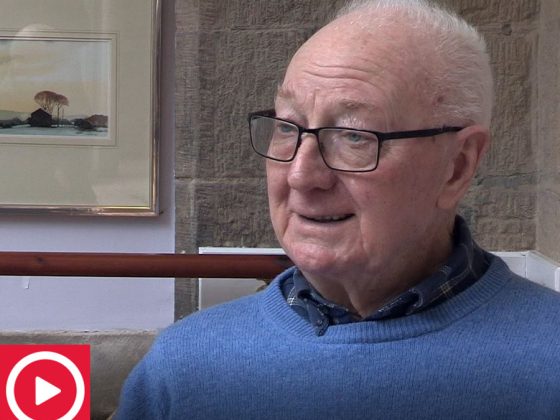Today we are joining millions around the world to mark World Alzheimer’s Day in a global effort to raise awareness and challenge the stigma around Alzheimer’s disease and other types of dementia. There are more than 55 million people across the world affected by the disease but research has shown that physical activity and staying socially engaged can be an important factor in slowing the progress of cognitive decline.
In 2019, we visited Keith for of our Power of Ping film series to learn how table tennis brought him happiness while living with Alzheimer’s. Keith has sadly since passed away, but it was touching to see how table tennis brought him back to a time when he was in ‘full flow as a younger man’ and so much pleasure and enjoyment.
The benefits of table tennis for people living with Alzheimer’s and dementia could include the following:
Cognitive stimulation
Table tennis requires players to think quickly, strategize, and react to the ball’s movement which helps with brain activation and enhanced neuroplasticity function. This stimulates various parts of the brain, including areas responsible for motor skills, decision-making, and spatial awareness.
Physical Benefits
The sport demands coordination of the hands, eyes, and feet which can help in maintaining or even improving motor skills, which often deteriorate in Alzheimer’s patients. Whilst it may not be as strenuous as other sports, table tennis provides a good cardiovascular workout for all abilities regardless of any physical or mental impairments.
Social Interaction
It has been reported that Alzheimer’s patients often feel isolated due to memory loss and cognitive decline. Playing table tennis allows them to interact with others, whether they are friends or new people to meet, which fosters a sense of belonging and reducing feelings of loneliness. This can be said for doubles matches which promote teamwork and communication which also promote inclusivity and social interaction.
Mood Enhancement
Physical activity, including table tennis, triggers the release of endorphins, the body’s natural mood elevators. This can help combat depression and anxiety, which are common in Alzheimer’s patients. Aspects of the game such as winning a point or learning a new technique can provide a confidence boost and a sense of accomplishment with small, but meaningful and attainable goals.
Whilst there is not currently a cure for Alzheimer’s, table tennis offers multiple benefits that can enhance the quality of life for those affected by the disease. Integrating table tennis into the routine of Alzheimer’s patients can provide cognitive, physical, and emotional advantages, making it more than just a game. As with any new activity, it’s essential to consult with healthcare professionals before introducing table tennis to ensure it’s suitable for the individual’s specific needs and conditions.
If you are interested in trying out table tennis with others aged over 50, search through our places to play map, just adjust the filter to ‘Bat and Chat’.
For more information about Alzheimer’s, visit the following links
Alzheimer’s Society homepage – https://www.alzheimers.org.uk/
Alzheimer’s Society Staying Active age – https://www.alzheimers.org.uk/active
Alzheimer’s Research UK – https://www.alzheimersresearchuk.org/
NHS Alzheimer’s page – https://www.nhs.uk/conditions/alzheimers-disease/
For more information on the BAT Foundation therapy table and projects – https://www.batfoundation.com/






